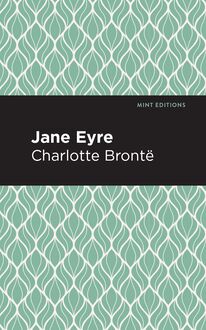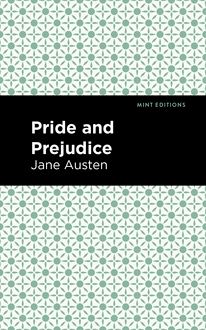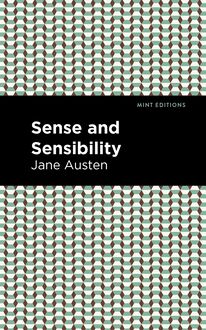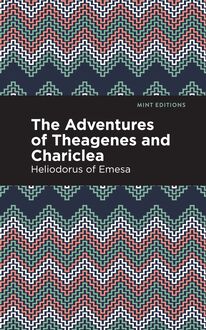-
 Univers
Univers
-
 Ebooks
Ebooks
-
 Livres audio
Livres audio
-
 Presse
Presse
-
 Podcasts
Podcasts
-
 BD
BD
-
 Documents
Documents
-
- Cours
- Révisions
- Ressources pédagogiques
- Sciences de l’éducation
- Manuels scolaires
- Langues
- Travaux de classe
- Annales de BEP
- Etudes supérieures
- Maternelle et primaire
- Fiches de lecture
- Orientation scolaire
- Méthodologie
- Corrigés de devoir
- Annales d’examens et concours
- Annales du bac
- Annales du brevet
- Rapports de stage
La lecture à portée de main

Vous pourrez modifier la taille du texte de cet ouvrage
Découvre YouScribe en t'inscrivant gratuitement
Je m'inscrisDécouvre YouScribe en t'inscrivant gratuitement
Je m'inscrisEn savoir plus
Vous pourrez modifier la taille du texte de cet ouvrage
En savoir plus

Description
The Black Moth (1921) is a historical romance novel by Georgette Heyer. Initially devised as a series of stories for her younger brother Boris, who suffered from hemophilia, The Black Moth became Heyer’s debut novel following its discovery by her father, who recognized its merits and sought publication. Published in Britain and the United States, The Black Moth was a commercial success that launched the career of one of twentieth-century England’s most popular writers of fiction.
Set during the Georgian era of the 1750s, the story follows Lord Jack Carstares, a disgraced nobleman who turns to a life of crime after taking the blame for his brother’s persistent dishonesty at cards. Branded a cheater and a thief, Jack briefly flees England before returning under the name of Sir Anthony Ferndale. Forced into the shadows, he becomes a highwayman notorious for robbing the carriages of the rich. Following his father’s death and his brother’s ascent to the head of the family estate, Jack is caught while robbing the carriage of a man who turns out to be Miles O’Hara, an old friend and Justice of the Peace. Arrested, Jack is forced to reveal his identity, and is promptly forgiven. Retaining his disguise and unready to rejoin the social life of England’s elite, Jack becomes embroiled in a scandal involving the abduction of Miss Diana Beauleigh, whom he rescues from the wicked Duke of Andover. Unable to remain anonymous for much longer, Jack is pulled by his innate goodness toward the friends and family he has long since left behind, allowing him one last chance at redemption.
With a beautifully designed cover and professionally typeset manuscript, this edition of Georgette Heyer’s The Black Moth is a classic work of English historical romance reimagined for modern readers.
Sujets
Informations
| Publié par | Mint Editions |
| Date de parution | 23 février 2021 |
| Nombre de lectures | 0 |
| EAN13 | 9781513276922 |
| Langue | English |
| Poids de l'ouvrage | 1 Mo |
Informations légales : prix de location à la page 0,0500€. Cette information est donnée uniquement à titre indicatif conformément à la législation en vigueur.
Extrait
The Black Moth
Georgette Heyer
The Black Moth was first published in 1921.
This edition published by Mint Editions 2021.
ISBN 9781513271927 | E-ISBN 9781513276922
Published by Mint Editions®
minteditionbooks.com
Publishing Director: Jennifer Newens
Design & Production: Rachel Lopez Metzger
Project Manager: Micaela Clark
Typesetting: Westchester Publishing Services
C ONTENTS P ROLOGUE I. A T THE C HEQUERS I NN, F ALLOWFIELD II. M Y L ORD AT THE W HITE H ART III. I NTRODUCING THE H ON. R ICHARD C ARSTARES IV. I NTRODUCING THE L ADY L AVINIA C ARSTARES V. H IS G RACE OF A NDOVER VI. B ATH: 29 Q UEEN S QUARE VII. I NTRODUCING S UNDRY N EW C HARACTERS VIII. T HE B ITER B IT IX. L ADY O ’ H ARA I NTERVENES X. L ADY O ’ H ARA R ETIRES XI. M Y L ORD T URNS R ESCUER AND C OMES N IGH E NDING H IS L IFE XII. M Y L ORD D ICTATES A L ETTER AND R ECEIVES A V ISITOR XIII. M Y L ORD M AKES H IS B OW XIV. M ISTRESS D IANA IS U NMAIDENLY XV. O ’ H ARA’S M IND IS M ADE U P XVI. M R. B ETTISON P ROPOSES XVII. L ADY O ’ H ARA W INS H ER P OINT XVIII. E NTER C APTAIN H AROLD L OVELACE XIX. T HE R EAPPEARANCE OF H IS G RACE OF A NDOVER XX. H IS G RACE OF A NDOVER T AKES A H AND IN THE G AME XXI. M RS. F ANSHAWE L IGHTS A F IRE AND O ’ H ARA F ANS THE F LAME XXII. D EVELOPMENTS XXIII. L ADY L AVINIA G OES TO THE P LAY XXIV. R ICHARD P LAYS THE M AN XXV. H IS G RACE OF A NDOVER C APTURES THE Q UEEN XXVI. M Y L ORD R IDES TO F RUSTRATE H IS G RACE XXVII. M Y L ORD E NTERS B Y THE W INDOW XXVIII. I N W HICH W HAT T HREATENED TO BE T RAGEDY T URNS TO C OMEDY XXIX. L ADY O ’ H ARA IS T RIUMPHANT E PILOGUE
P ROLOGUE
C lad in his customary black and silver, with raven hair unpowdered and elaborately dressed, diamonds on his fingers and in his cravat, Hugh Tracy Clare Belmanoir, Duke of Andover, sat at the escritoire in the library of his town house, writing.
He wore no rouge on his face, the almost unnatural pallor of which seemed designedly enhanced by a patch set beneath his right eye. Brows and lashes were black, the former slanting slightly up at the corners, but his narrow, heavy-lidded eyes were green and strangely piercing. The thin lips curled a little, sneering, as one dead-white hand travelled to and fro across the paper.
“… but it seems that the Fair Lady has a Brother, who, finding Me Enamoured, threw down the Gauntlet. I soundly whipt the presumptuous Child, and so the Affair ends. Now, as you, My dear Frank, also took some Interestt in the Lady, I write for the Express Purpose of informing You that at my Hands she has received no Hurt, nor is not like to. This I in part tell You that You shall not imagine Yr self in Honor bound again to call Me out, which Purpose, an I mistake not, I yesterday read in Yr Eyes. I should be Exceeding loth to meet You a Second Time, when I should consider it my Duty to teach You an even severer Lesson than Before. This I am not Wishful of doing for the Liking I bear You.
So in all Friendship believe me, Frank,
Your most Obedient, Humble
D EVIL
His Grace of Andover paused, pen held in mid-air. A mocking smile dawned in his eyes, and he wrote again.
“In the event of any Desire on Yr Part to hazard Yr Luck with my late Paramour, Permit Me to warn You ’gainst the Bantam Brother, who is in Very Truth a Fire-Eater, and would wish to make of You, as of Me, one Mouthfull. I shall hope to see You at the Queensberry Rout on Thursday when You may Once More strive to direct mine Erring Footsteps on to the Thorny Path of Virtue.”
His Grace read the postscript through with another satisfied, sardonic smile. Then he folded the letter, and affixing a wafer, peremptorily struck the hand-bell at his side.
And the Honourable Frank Fortescue, reading the postscript half-an-hour later, smiled too, but differently. Also he sighed and put the letter into the fire.
“And so ends another affaire … I wonder if you’ll go insolently to the very end?” he said softly, watching the paper shrivel and flare up. “I would to God you might fall honestly in love—and that the lady might save you from yourself—my poor Devil!”
I
A T THE C HEQUERS I NN, F ALLOWFIELD
C hadber was the name of the host, florid of countenance, portly of person, and of manner pompous and urbane. Solely within the walls of the Chequers lay his world, that inn having been acquired by his great-grandfather as far back as the year 1667, when the jovial Stuart King sat on the English throne, and the Hanoverian Electors were not yet dreamed of.
A Tory was Mr. Chadber to the backbone. None so bitter ’gainst the little German as he, and surely none had looked forward more eagerly to the advent of the gallant Charles Edward. If he confined his patriotism to drinking success to Prince Charlie’s campaign, who shall blame him? And if, when sundry Whig gentlemen halted at the Chequers on their way to the coast, and, calling for a bottle of Rhenish, bade him toss down a glass himself with a health to his Majesty, again who shall blame Mr. Chadber for obeying? What was a health one way or another when you had rendered active service to two of his Stuart Highness’s adherents?
It was Mr. Chadber’s boast, uttered only to his admiring Tory neighbours, that he had, at the risk of his own life, given shelter to two fugitives of the disastrous ’Forty-five, who had come so far out of their way as quiet Fallowfield. That no one had set eyes on either of the men was no reason for doubting an honest landlord’s word. But no one would have thought of doubting any statement that Mr. Chadber might make. Mine host of the Chequers was a great personage in the town, being able both to read and to write, and having once, when young, travelled as far north as London town, staying there for ten days and setting eyes on no less a person than the great Duke of Marlborough himself when that gentleman was riding along the Strand on his way to St. James’s.
Also, it was a not-to-be-ignored fact that Mr. Chadber’s home-brewed ale was far superior to that sold by the landlord of the rival inn at the other end of the village.
Altogether he was a most important character, and no one was more aware of his importance than his worthy self.
To “gentlemen born,” whom, he protested, he could distinguish at a glance, he was almost obsequiously polite, but on clerks and underlings, and men who bore no signs of affluence about their persons, he wasted none of his deference.
Thus it was that, when a little green-clad lawyer alighted one day from the mail coach and entered the coffee-room at the Chequers, he was received with pomposity and scarce-veiled condescension.
He was nervous, it seemed, and more than a little worried. He offended Mr. Chadber at the outset, when he insinuated that he was come to meet a gentleman who might perhaps be rather shabbily clothed, rather short of purse, and even of rather unsavoury repute. Very severely did Mr. Chadber give him to understand that guests of that description were entirely unknown at the Chequers.
There was an air of mystery about the lawyer, and it appeared almost as though he were striving to probe mine host. Mr. Chadber bridled a little, and became aloof and haughty.
When the lawyer dared openly to ask if he had had any dealings with highwaymen of late, he was very properly and thoroughly affronted.
The lawyer became suddenly more at ease. He eyed Mr. Chadber speculatively, holding a pinch of snuff to one thin nostril
“Perhaps you have staying here a certain—ah-Sir-Anthony-Ferndale?” he hazarded.
The gentle air of injury fell from Mr. Chadber. Certainly he had, and come only yesterday a-purpose to meet his solicitor.
The lawyer nodded.
“I am he. Be so good as to apprise Sir Anthony of my arrival.”
Mr. Chadber bowed exceeding low, and implored the lawyer not to remain in the draughty coffee-room. Sir Anthony would never forgive him an he allowed his solicitor to await him there. Would he not come to Sir Anthony’s private parlour?
The very faintest of smiles creased the lawyer’s thin face as he walked along the passage in Mr. Chadber’s wake.
He was ushered into a low-ceilinged, pleasant chamber looking out on to the quiet street, and left alone what time Mr. Chadber went in search of Sir Anthony.
The room was panelled and ceilinged in oak, with blue curtains to the windows and blue cushions on the high-backed settle by the fire. A table stood in the centre of the floor, with a white table-cloth thereon and places laid for two. Another smaller table stood by the fireplace, together with a chair and a stool.
The lawyer took silent stock of his surroundings, and reflected grimly on the landlord’s sudden change of front. It would appear that Sir Anthony was a gentleman of some standing at the Chequers.
Yet the little man was plainly unhappy, and fell to pacing to and fro, his chin sunk low on his breast, and his hands clasped behind his back. He was come to seek the disgraced son of an Earl, and he was afraid of what he might find.
Six years ago Lord John Carstares, eldest son of the Earl of Wyncham, had gone with his brother, the Hon. Richard, to a card party, and had returned a dishonoured man.
That Jack Carstares should cheat was incredible, ridiculous, and at first no one had believed the tale that so quickly spread. But he had confirmed that tale himself, defiantly and without shame, before riding off, bound, men said, for France and the foreign parts. Brother Richard was left, so said the countryside, to marry the lady they were both in love with. Nothing further had been heard of Lord John, and the outraged Earl forbade his name to be mentioned at Wyncham, swearing to disinherit the prodigal. Richard espoused the fair Lady Lavinia and brought her to live at the great house, strangely forlorn now without Lord John’s magnetic presence; but, far from being an elated bridegroom, he seemed to have brought gloom with him from the honeymoon, so silent and so unhappy was he.
Six years drifted slow
Attention
En entrant sur cette page, vous certifiez :
- 1. avoir atteint l'âge légal de majorité de votre pays de résidence.
- 2. avoir pris connaissance du caractère érotique de ce document.
- 3. vous engager à ne pas diffuser le contenu de ce document.
- 4. consulter ce document à titre purement personnel en n'impliquant aucune société ou organisme d'État.
- 5. vous engager à mettre en oeuvre tous les moyens existants à ce jour pour empêcher n'importe quel mineur d'accéder à ce document.
- 6. déclarer n'être choqué(e) par aucun type de sexualité.
YouScribe ne pourra pas être tenu responsable en cas de non-respect des points précédemment énumérés. Bonne lecture !
-
 Univers
Univers
-
 Ebooks
Ebooks
-
 Livres audio
Livres audio
-
 Presse
Presse
-
 Podcasts
Podcasts
-
 BD
BD
-
 Documents
Documents
-
Jeunesse
-
Littérature
-
Ressources professionnelles
-
Santé et bien-être
-
Savoirs
-
Education
-
Loisirs et hobbies
-
Art, musique et cinéma
-
Actualité et débat de société
-
Jeunesse
-
Littérature
-
Ressources professionnelles
-
Santé et bien-être
-
Savoirs
-
Education
-
Loisirs et hobbies
-
Art, musique et cinéma
-
Actualité et débat de société
-
Actualités
-
Lifestyle
-
Presse jeunesse
-
Presse professionnelle
-
Pratique
-
Presse sportive
-
Presse internationale
-
Culture & Médias
-
Action et Aventures
-
Science-fiction et Fantasy
-
Société
-
Jeunesse
-
Littérature
-
Ressources professionnelles
-
Santé et bien-être
-
Savoirs
-
Education
-
Loisirs et hobbies
-
Art, musique et cinéma
-
Actualité et débat de société
- Cours
- Révisions
- Ressources pédagogiques
- Sciences de l’éducation
- Manuels scolaires
- Langues
- Travaux de classe
- Annales de BEP
- Etudes supérieures
- Maternelle et primaire
- Fiches de lecture
- Orientation scolaire
- Méthodologie
- Corrigés de devoir
- Annales d’examens et concours
- Annales du bac
- Annales du brevet
- Rapports de stage











